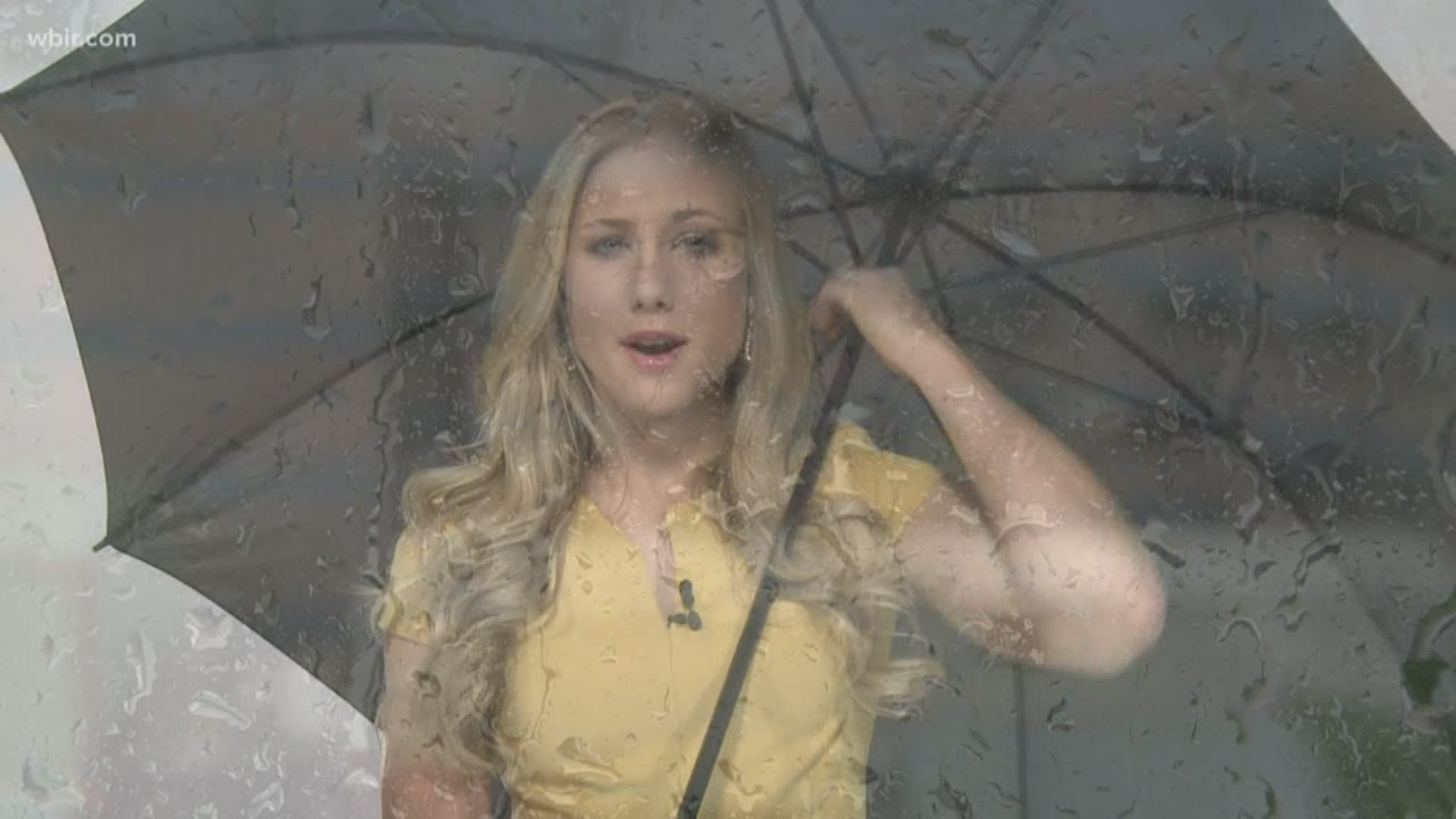KNOXVILLE, Tenn. — It seems like we've seen endless rain and gloomy weather since 2020 began, and it might make you wonder if not seeing the sun shine is affecting our health and mood.
Could low Vitamin D levels be to blame?
You make Vitamin D when the sun's UV rays hit your skin. Sunlight is the easiest way for the body to absorb vitamin D.
Experts say you need anywhere between 5 and 30 minutes of sun between the hours of 10 a.m. and 3 p.m. on a majority of your body; arms, legs, and face.
50 percent of Americans have low Vitamin D year round, and this number might even be lower during the winter months. We are more covered up, indoors more and the days are shorter during winter so we don't see the sun as often.
Some people might find their mood is as gloomy as the weather outside, but is there a correlation and can you fix it?
"The relationship between Vitamin D and "winter blues", seasonal effective disorder, and cabin fever, those studies are preliminary," said Lisa Cooper, a registered dietitian and licensed nutritionist with Paragon Healthcare.
"There is a relationship between Vitamin D and bone health, so getting adequate Vitamin D to absorb calcium is important."
While Vitamin D is important for bone health and immunity. As for your mood, there's not a clear answer.
"A lot of people associate low Vitamin D because they miss the sun, their outdoor activities, or the lake and things they enjoy in the summer. And we feel sad in the winter. So getting outside and getting exercise and fresh air is proven to hep depression. Is it the Vitamin D or is it just getting outside and getting a walk in? We don't know, but we do know exercise, sleep, eating well, and spending time with friends can help blues in the winter."
WHO IS THE MOST AT RISK?
Skin color, age and weight can all play a factor in your Vitamin D levels and absorption.
"People who have darker skin do not make as much Vitamin D through the skin as fair skinned people," Cooper said.
"If your over the age of 70 you should be taking a Vitamin D supplement anyway since you are at higher risk of bone fractures."
Cooper says those with chronic illnesses might also need a boost depending on their condition, but it's best to talk with a doctor.
People who are overweight don't store Vitamin D as well as others and could have a deficiency.
As for babies, all exclusively breastfed infants should be getting a Vitamin D supplement drop form.
For babies on formula, most infant formulas are fortified with Vitamin D.
FOODS RICH IN VITAMIN D
"Fatty fish, sockeye salmon, swordfish and mushrooms all have Vitamin D, " Cooper said, "But most people get it from fortified milk, breakfast cereals... a lot of our foods are fortified with Vitamin D."
Make sure to not overdo it, because some foods that are high in Vitamin D are also high in Vitamin A -- which in high levels can be toxic.
Cooper says most calcium supplements contain Vitamin D.
DROPS, PILLS AND LAMPS
Vitamin D drops, gel caps and pill are readily available in most big box stores and pharmacies.
The recommended amount for people ages 1 to 70 is 15 micrograms per day.
Cooper says before you buy any of these, check your multi-vitamin because there is a good chance you're already getting what you need daily.
And remember, supplements aren't regulated like drugs through the FDA. If you're unsure what brand to buy, looking for the USP seal is a good rule of thumb. Seeing the USP mark on a dietary supplement label indicates that the product contains the ingredients listed on the label in the amounts listed by the label.
On Amazon, you'll find special lamps that help with mood disorders. Using broad spectrum light, they say they can improve mood or help people sleep.
Cooper isn't an expert on how these operate--but she says these devices are often used by people who are on shift work or an odd schedule. The lamps don't emit UV rays, but be careful if you have eye problems like glaucoma; they are not good for you to be around.
You'll also want to start slow, it isn't something you can flip on and leave for hours. There are specific guidelines for use. And it's important to consult your doctor first.
When the sun goes hiding, some people head to the tanning bed to find warmth and light.
"You probably do make some Vitamin D while you are laying in the tanning bed, but it is a terrible way to get it." Cooper said.
"As far as we know, nobody dies from Vitamin D deficiency, but 8,000 people a year die from melanoma. So going to a tanning bed to get your Vitamin D is not recommended."
FEELING DOWN?
If you think you may be experiencing seasonal depression, talk to a doctor. They might decide to have a Vitamin D level check through a blood draw. If low vitamin D levels aren't the problem, your doctor will still be able to point you in the right direction.

